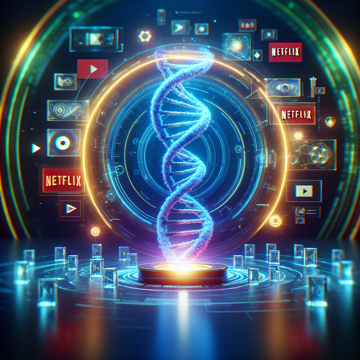CRISPR Babies, Quantum Surges, and the $6.5B AI Device: Tech’s Mad Dash to Rewire Reality

Buckle up—science fiction is officially out of a job. While you were doomscrolling, the world’s inventors and disruptors have been hard at work, blurring the lines between miracle cures, robot coworkers, and mind-bending computers. If you blink, you’ll miss the future happening in real time.
Let’s start with the story everyone should be talking about: a tiny human named KJ Muldoon, who just became the first person to get a CRISPR gene edit tailored uniquely to him. This isn’t your average off-the-shelf therapy. We’re talking about a custom molecular repair job that could rescue babies born with deadly genetic glitches, and it was whipped up in a blistering six months. The team used a precise DNA editing technique called base editing to fix a mutation that left KJ unable to process proteins, sparing him from a near-certain fate. The catch? These therapies are expensive, and each one is a one-off masterpiece—hardly scalable for the masses, yet a glimpse at a world where medicine is as personalized as your Netflix queue [1].
But why stop at rewriting DNA when you can also rewire the machines we rely on? Electric vehicles are about to get a massive jolt—literally. Solid-state batteries, once the stuff of lab bench daydreams, are rolling off the line and into real cars. Mercedes has already driven an EV powered by these next-gen batteries, and Stellantis plans to launch a whole fleet by 2026. These batteries ditch flammable liquids for gel-like or solid electrolytes, packing more power, charging faster, and—crucially—making those rolling lithium fireballs a thing of the past. It’s the EV revolution’s shot at finally going mainstream, with energy densities that make current batteries look like AA cells [2].
Of course, if you want to simulate the future before living it, you’ll need some serious computational muscle. Quantum computers just took a leap forward too: D-Wave dropped its sixth-gen Advantage2 quantum system, complete with less noise, more qubit connectivity, and the promise to solve problems that would fry even the world’s beefiest supercomputers. While some skeptics roll their eyes, D-Wave’s stock spiked as businesses started running real-world problems—like fine-tuning magnetic sensors—on their cloud. Quantum isn’t just for science fiction anymore. The race is on to see which geek squad will make it pay off first [3].
Meanwhile, Ray Kurzweil’s vision of humans and machines working as equals is moving from TED talk to assembly line. His startup, Beyond Imagination, is building humanoid robots that can fill in at hospitals, farms, and anywhere hands are in short supply. Investors are lining up with $100 million bets, and with AI’s recent leaps, these bots could soon be flipping burgers or even assisting in surgery. The singularity? Maybe it’s just a really good operating system away [4].
And speaking of world-changing operating systems, OpenAI just dropped $6.5 billion to snag IO, the brainchild of legendary iPhone designer Jony Ive. Forget apps—OpenAI is gunning for a physical gadget designed from scratch for artificial general intelligence, aiming to make AI as much a part of your daily life as your morning coffee. If AI’s been stuck in your phone, that’s about to change. The next must-have device may just be your always-on, always-learning AI sidekick [5].
Science isn’t just moving fast—it’s overlapping, colliding, and reinventing itself at every turn. From gene editing babies to quantum leaps and robot coworkers, the only thing that hasn’t changed is the need to keep up. Welcome to the era where the future refuses to wait.
1. https://www.scientificamerican.com/article/first-personalized-crispr-treatment-gives-baby-new-lease-on-life/
2. https://www.electronicdesign.com/markets/automotive/article/55291872/electronic-design-solid-state-battery-cells-for-fast-charging-high-energy-density-coming-in-2026
3. https://www.sharecafe.com.au/2025/05/21/d-wave-quantum-shares-surge-25-93-on-launch-of-sixth-generation-quantum-computer/
4. https://observer.com/2025/05/ray-kurzweil-humanoid-robotics-startup-500m-valuation/
5. https://www.nytimes.com/2025/05/21/technology/openai-jony-ive-deal.html